
Table Of Contents
Introduction
Importance of Choosing the Right Tires for Your SUV
Choosing the right tires for your SUV is not just about aesthetics; it’s an essential factor that influences your vehicle’s performance, safety, and overall driving experience. Imagine hitting the road on a family trip or tackling a rugged off-road trail but struggling with inadequate tires. It can turn a pleasant journey into a stressful one. The right tires can enhance traction, improve handling, and ensure a smooth ride, whether you are cruising down the highway or navigating through muddy paths. For example, a friend of mine once opted for all-season tires for her SUV, thinking they would suffice. But when she faced a snowstorm, she found herself slipping and sliding. The experience taught her that choosing the correct tires for specific conditions is crucial.
Factors to Consider When Buying SUV Tires
When it comes to selecting SUV tires, several key factors should come to the forefront:
- Driving Conditions: Are you mainly cruising on highways or venturing off the beaten path? Knowing where you’ll be driving helps choose between all-season and off-road tires.
- Tire Size and Load Index: Understanding the specifications of tire sizes and load capacity is vital for your SUV’s safety and efficiency.
- Desired Performance: Whether you seek better fuel efficiency, traction, or durability, different tire models cater to various performance aspects.
- Brand and Warranty: Not all tires are created equal. It’s wise to consider reputable brands that offer good warranties for peace of mind.
By considering these factors, you can better navigate the wide array of options available and find the perfect tires suited to your particular needs and lifestyle. This proactive approach ensures you enjoy every ride your SUV has to offer, no matter the terrain.

Types of SUV Tires
All-Season Tires
All-season tires are designed to provide versatile performance across various weather conditions, making them a popular choice for many SUV owners. If you’re someone who primarily drives on highways or in urban settings and encounters mild weather changes, all-season tires might be right up your alley. These tires excel in:
- Wet and Dry Traction: They offer reliable grip on both dry and wet roads, thanks to their tread patterns designed to channel water away.
- Longevity: All-season tires generally boast a longer tread life, providing an economical option for those who do not want to change tires with the seasons.
- Comfortable Ride: Their design often leads to a quieter, smoother ride, making them great for family trips or daily commutes.
However, keep in mind that while they are versatile, all-season tires may not perform as well in extreme winter conditions or heavy snow compared to dedicated winter tires.
Off-Road Tires
On the other hand, if you like to venture off the beaten path, off-road tires are essential. Designed for rugged terrains, these tires prioritize durability and traction over comfort and noise levels. Key features of off-road tires include:
- Aggressive Tread Patterns: The deep, knobby designs help in gripping onto loose surfaces like mud, gravel, or sand, enabling better maneuverability.
- Reinforced Sidewalls: Many off-road tires come with tougher sidewalls to resist punctures from sharp rocks and rough terrain.
- Versatility: While primarily built for off-road use, some hybrids offer passing functionality on highways despite being a bit louder.
Choosing between all-season and off-road tires should reflect your driving habits and the environments you frequently traverse. A simple chat with fellow SUV enthusiasts can provide firsthand experiences that could guide your decision!
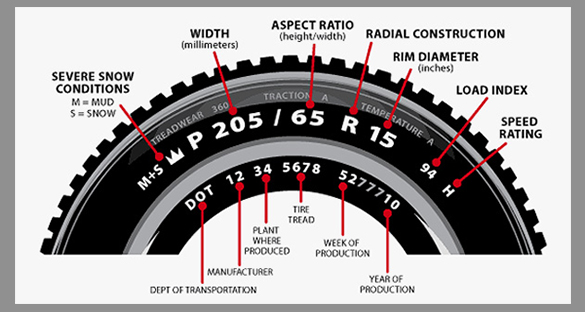
Tire Size and Load Index
Understanding Tire Size for SUVs
When purchasing tires for your SUV, understanding tire size is crucial. The size indicates how your tires will perform in different conditions and how they will fit your vehicle. Each tire size is expressed through a series of numbers and letters, such as P245/65R17. Let’s break it down:
- P: This denotes that the tire is designed for passenger vehicles.
- 245: The width of the tire in millimeters. A wider tire can offer better grip but may consume more fuel.
- 65: This is the aspect ratio, indicating the height of the tire’s sidewall compared to its width. A lower ratio typically means better handling.
- R: Refers to the tire’s construction type (in this case, radial).
- 17: Indicates the diameter of the wheel in inches that the tire will fit.
Understanding this code not only helps ensure compatibility with your SUV but also aids you in making informed decisions about performance enhancements.
Importance of Load Index for SUV Tires
Next up is the load index, which is often overlooked but is just as important as size. The load index is a numerical code that specifies the maximum load a tire can support when properly inflated. It can range from 0 to 279. Here’s why it matters:
- Safety: An inadequate load index can lead to tire failure under heavy loading conditions, risking your safety and that of your passengers.
- Vehicle Performance: The load index influences ride quality. Tires optimized for the appropriate load can improve handling and fuel efficiency.
- Usage Scenarios: If you frequently carry heavy loads, such as family gear or towing trailers, selecting tires with a higher load index is essential.
For instance, when my family decided to take a road trip with additional luggage, I ensured our SUV tires had a suitable load index, enhancing both safety and comfort during the journey. By understanding both tire size and load index, you can ensure your SUV is equipped for a safe and enjoyable driving experience.
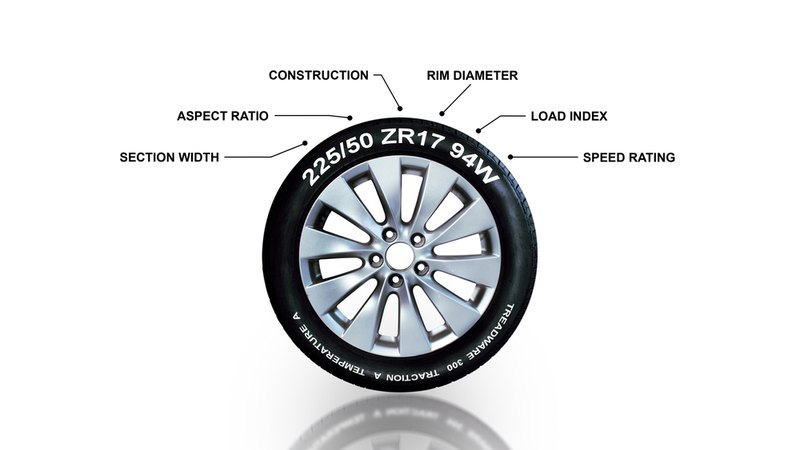
Tread Patterns and Traction
Tread Pattern Options for SUVs
Tread patterns play a vital role in the performance of SUV tires, directly impacting handling, traction, and overall driving comfort. Different tread designs are tailored to various driving conditions, so choosing the right one for your needs is essential. Here are some common tread pattern options:
- Symmetrical Patterns: These offer a balanced performance in both wet and dry conditions, making them ideal for all-season tires. I personally love the feeling of stability when driving my SUV with symmetrical tires during a rainy commute.
- Asymmetrical Patterns: Designed with different tread patterns on the inside and outside, these tires often provide enhanced cornering and traction. This design is perfect for drivers who enjoy spirited driving and want better handling in varied conditions.
- Directional Patterns: These tires are specifically designed to perform in one direction and often come with deep grooves to channel water away effectively, enhancing wet traction. I remember when I had directional tires on my SUV; it felt like I was gliding through puddles during rainy seasons!
Understanding these tread options can help you determine what best suits your driving habits and climate.
The Role of Traction in SUV Tire Performance
Traction is essentially how well your tires grip the road, which greatly affects your SUV’s performance, especially during acceleration, braking, and cornering. Here’s why traction is critical:
- Safety: Good traction reduces the chances of skidding and improves overall handling, making your SUV safer to drive. Remember that trip when you had to brake suddenly? Tires with excellent traction would provide better stopping power.
- Driving Experience: Improved traction translates to a more enjoyable drive, particularly on twists and turns, allowing for a confident feel behind the wheel.
- Adaptability: Tires with enhanced traction can handle diverse terrains, from city streets to rough off-road trails, ensuring your adventures are smooth and secure.
By selecting the right tread pattern that maximizes traction, you can significantly enhance your SUV’s capability on the road, providing peace of mind during every journey.
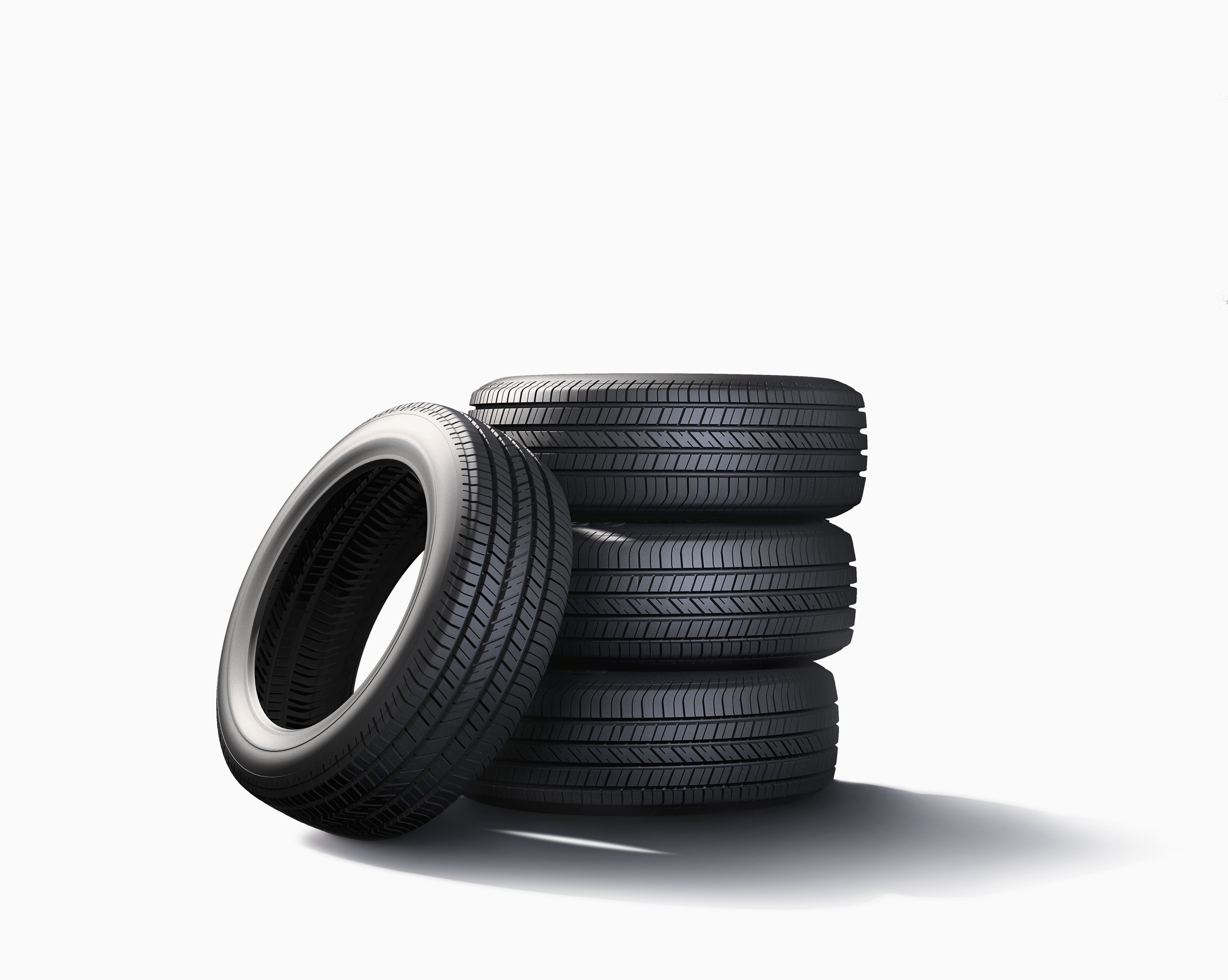
Tire Brands and Reviews
Top SUV Tire Brands in the Market
When it comes to selecting tires for your SUV, choosing a reputable brand can make all the difference in performance and reliability. Among the myriad options available, some brands stand out due to their long-standing reputation, quality products, and innovative technology. Here are some of the top SUV tire brands to consider:
- Michelin: Known for their exceptional quality, Michelin offers a wide range of SUV tires that deliver outstanding performance and longevity. I have used Michelin tires on my vehicle, and they felt incredibly durable and smooth on long drives.
- Goodyear: Another name synonymous with trust, Goodyear provides performance and all-terrain tires, making them a go-to for those who often drive on varied surfaces.
- Bridgestone: Their Dueler series is particularly popular for SUVs, offering versatility and great performance in all conditions.
- Continental: With advanced technology and a strong focus on safety, Continental tires are renowned for their excellent handling and comfort.
- Pirelli: For those eyeing a sportier ride, Pirelli tires are designed for performance and grip, making them ideal for dynamic driving experiences.
Customer Reviews and Ratings
Beyond brand recognition, customer reviews provide invaluable insights into tire performance. Before committing to a purchase, it’s wise to read user experiences that highlight both strengths and weaknesses. For instance, while checking reviews for the Michelin Premier LTX, many users rave about its wet traction and ride comfort. Conversely, some customers voiced concerns about its higher price point compared to competitors. Here’s a quick summary of general customer feedback trends:
- Performance: Most praise comfort and handling across varying conditions.
- Longevity: Users often note that quality brands like Michelin and Goodyear last longer than budget options.
- Noise Levels: Some tire models get flagged for generating excess road noise, which can impact the comfort of longer drives.
Ultimately, diving into customer reviews and ratings will equip you with a balanced view, helping you make an informed decision tailored to your SUV’s needs. This way, you ensure your investment in tires pays off in safety and performance.
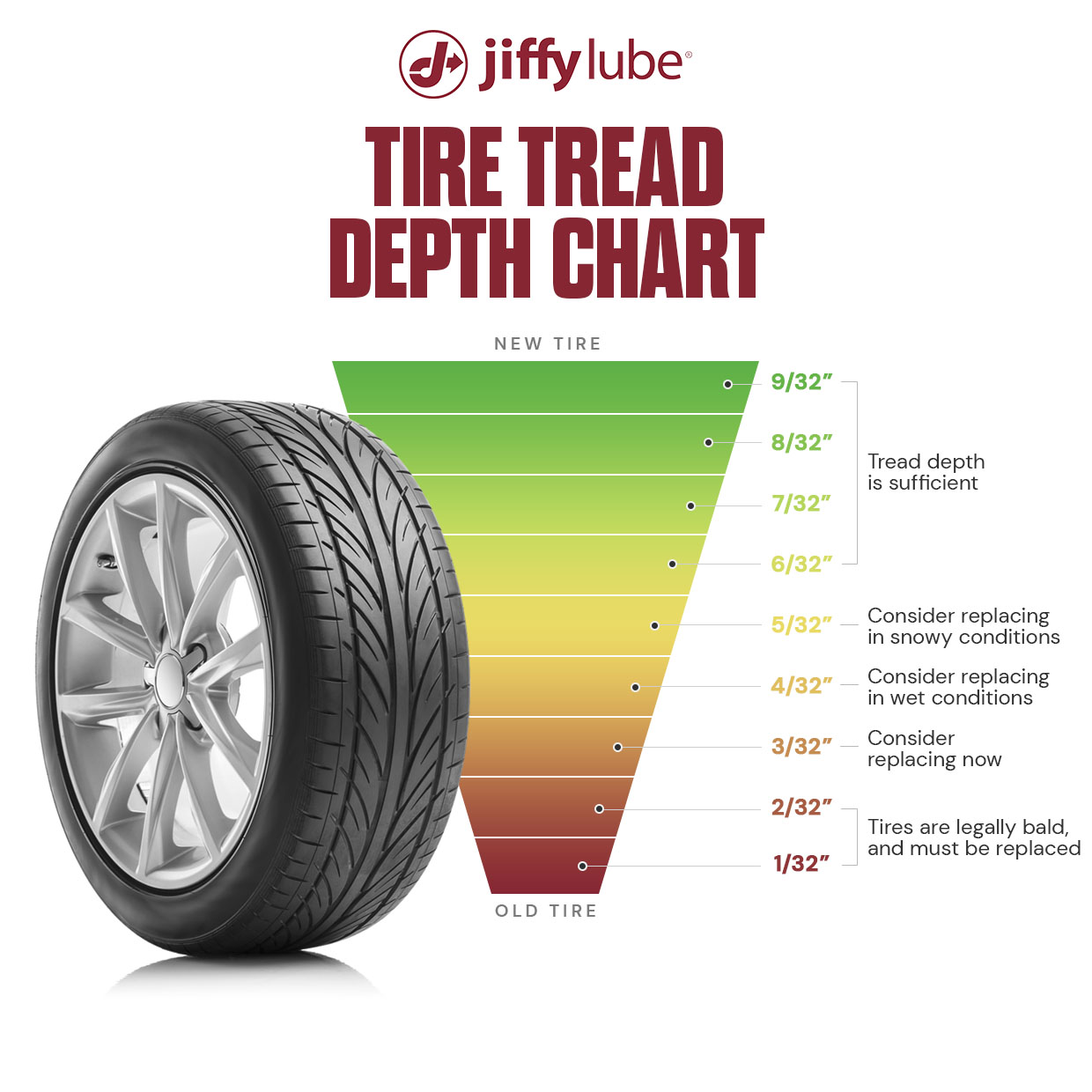
Tire Maintenance Tips
Proper Inflation and Rotation
Once you’ve selected the right tires for your SUV, maintaining them is equally crucial to ensure they perform well over time. One of the most important maintenance tasks is keeping your tires inflated to the correct pressure. Under-inflation can not only reduce fuel efficiency but can also lead to tire wear and blowouts. To maintain proper inflation:
- Check Tire Pressure Regularly: Use a quality tire pressure gauge to check the pressure at least once a month and before long trips. Most SUVs have the recommended pressure listed on a sticker inside the driver’s door.
- Adjust as Needed: Inflate your tires to the recommended level, especially after changing weather conditions, as temperature fluctuations can cause tire pressure to change.
Additionally, tire rotation is essential for even wear. Here’s why:
- Even Tire Wear: Rotating your tires every 6,000 to 8,000 miles helps distribute wear evenly across all tires, prolonging their lifespan.
- Improved Handling: Regular rotation can also enhance your SUV’s handling, giving you a smoother ride.
I recall when I forgot to rotate my tires after the last road trip—it led to an unexpected flat! Lesson learned: regular maintenance can save you trouble later.
Checking Tread Wear and Alignment
Apart from inflation and rotation, checking tread wear and alignment is vital to maintaining tire health. Tread wear indicators are often found within the grooves of the tire. Here’s how to assess your tires:
- Visual Inspection: Monthly, do a visual check for uneven wear patterns or bald spots. If the tread is worn down to 2/32 of an inch, it’s time to replace the tires.
- The Penny Test: Insert a penny into the tread. If you can see the top of Lincoln’s head, it’s time for new tires.
Alignment issues can cause tires to wear unevenly and affect handling. Signs of misalignment include:
- Steering Pull: If your steering wheel pulls to one side, it may indicate misalignment.
- Uneven Tire Wear: Look for more wear on one edge of the tire compared to the other.
By staying on top of these maintenance tips, your SUV tires will not only last longer but will also ensure a safe and enjoyable driving experience. Regular checks can be quick yet make a significant difference in performance and safety on the road.
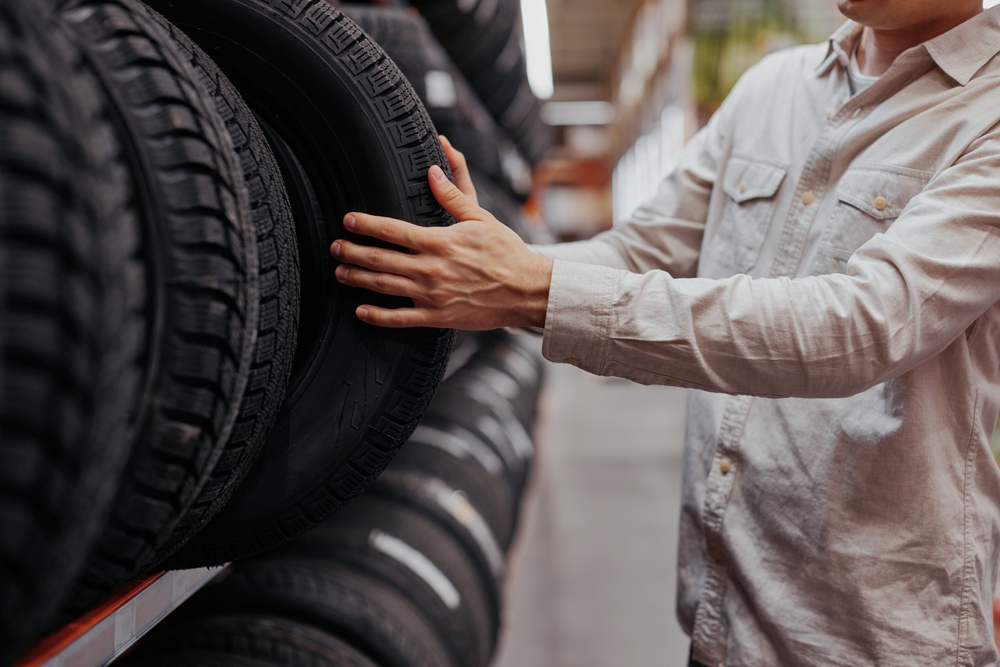
Cost Considerations
Budget-Friendly SUV Tire Options
When it comes to purchasing tires for your SUV, cost is often a significant consideration. However, just because you’re on a budget doesn’t mean you have to sacrifice quality. Fortunately, several budget-friendly options provide a great balance of performance and price. Here are a few budget-friendly brands and options to consider:
- Cooper Tires: Known for their affordability, Cooper offers a variety of all-season and off-road tires that perform well without breaking the bank. I’ve had a solid experience with Cooper tires; they gripped the road nicely even during rain.
- General Tire: With options like the Altimax series, General Tire provides good performance and durability at a fraction of the price of premium brands.
- Hankook: This brand often gets rave reviews for its performance tires that come in at a lower price point.
While these options can save you money upfront, remember to check for performance ratings to ensure they meet your needs.
Long-Term Savings with Quality Tires
While budget tires might seem appealing initially, investing in quality tires can lead to more significant long-term savings. Here’s why spending a bit more upfront can pay off:
- Extended Lifespan: Quality tires, such as those from Michelin or Bridgestone, typically last longer than off-brand options. This longevity means fewer replacements over time. I once went with a cheaper brand, and they wore out much sooner than I expected, leading to extra costs.
- Better Fuel Efficiency: Higher-quality tires often feature technologies that improve fuel efficiency, saving you money at the pump as well.
- Enhanced Safety: Better tires provide superior traction and performance, reducing the chances of accidents and costly repairs. When my friend invested in premium tires for her SUV, she noticed not only improved handling but also peace of mind during winter driving.
Ultimately, it’s essential to weigh the initial costs against the potential long-term benefits. By carefully considering your options and investing wisely, you can find tires that fit both your budget and your SUV’s performance needs.




